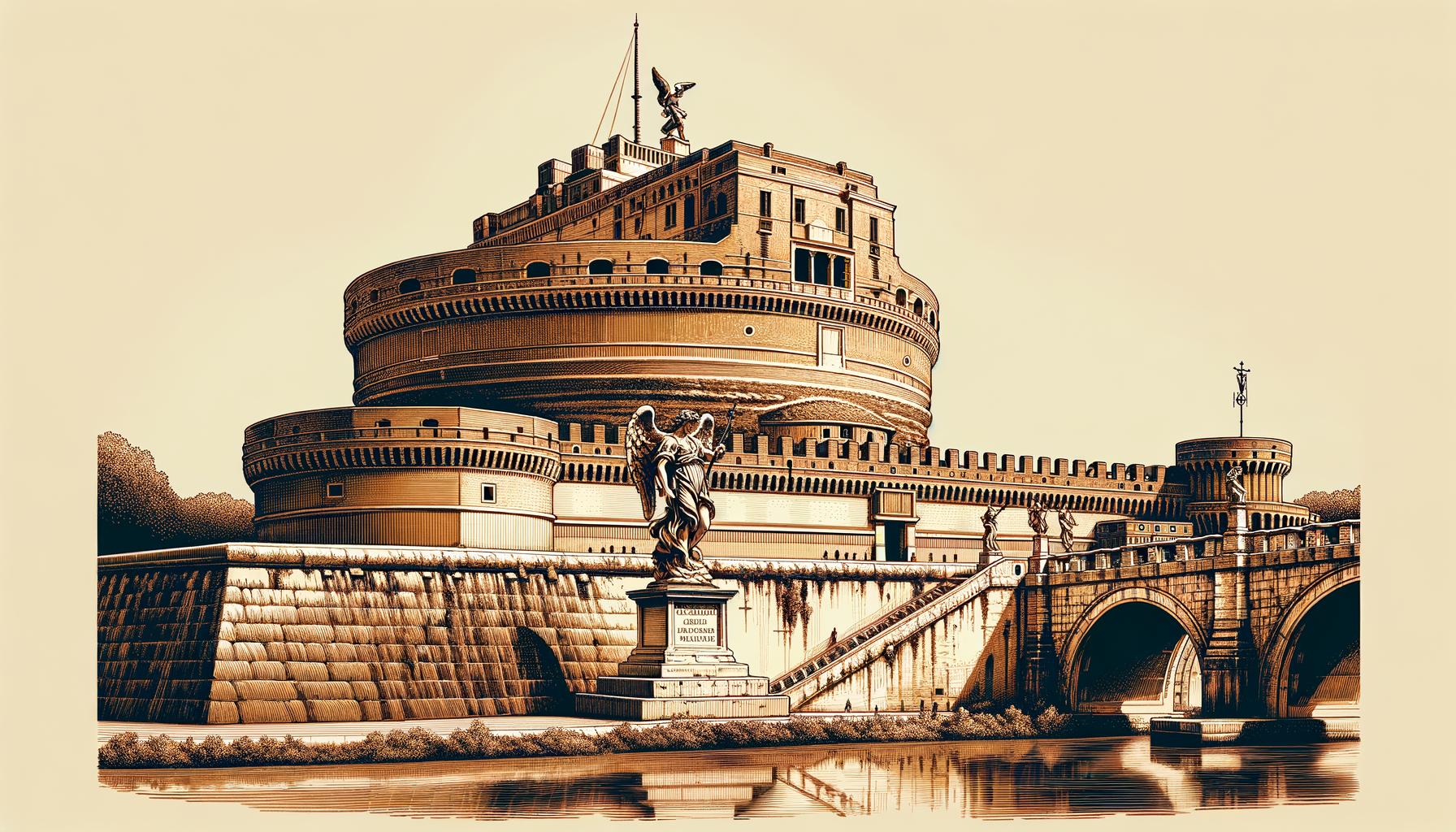
Castel Sant’Angelo in Rome
Would you like to visit Castel Sant’Angelo in Rome? This remarkable Castle of the Holy Angel was originally a mausoleum. The statue on the fort is a reminder of the appearance of archangel Michael.
Tours & Tickets
- Address: Lungotevere di Castello 50, Rome
- Metro: Metro stop Lepanto (Line A), about 15 minutes walk (1 kilometer)
Tickets Tip: Expect long queues at the ticket window of the Castle of the Holy Angel during high season. It is always recommended to book your Castel Sant’ Angelo tickets in advance.
Your options:
- Tickets Castel Sant’ Angelo, from 19 € (Book tickets online) 0 – 17 jaar € 3,50
- Tickets Castel Sant’ Angelo + audioguide, from 26 € (Book tickets online)
Guided tour Secrets Beneath Castel Sant’Angelo (Book this guided tour and explore places that are generally closed to the public)
Recommended: The popular Rome Tourist Card is a city pass where you have all the tickets for your Rome city trip together (including the Colosseum, Roman Forum, Vatican Museum, Sistine Chapel and optionally the Castel Sant’Angelo). More info Rome Tourist Card.
Opening hours
Tuesday to Sunday from 9:00 am to 7:30 pm Closed on Monday, January 1st, May 1st and December 25th
History of Castel Sant’Angelo
The Castel Sant’Angelo was built in the 2nd century as a mausoleum by order of emperor Hadrian. The mausoleum did not become associated with the name of archangel Michael until 590, when Pope Gregory I saw archangel Michael sheathe his sword on top of the mausoleum during a plague to signal the end of the epidemic. Later pope Pius II built a chapel at the site where the archangel was said to have appeared. The remarkable bronze statue of archangel Michael was made in 1753 by Peter Anton von Verschaffelt. The Castle of the Holy Angel in Rome also owes a lot of its fame to the film adaptation of Dan Brown’s Angels and Demons, where the castle served as a hideout for the Illuminati.
Castel Sant’Angelo from the Aelian Bridge
The mausoleum was converted to a castle in the year 280 when the Aurelian walls were built around it. The castle occupied a good strategic position on the Tiber river. However, the castle was still sacked twice in 410 and 537, and many of the cover stones of most of the funerary urns were destroyed. Because the Vatican would later fall outside the city walls and turned out to be difficult to defend, Castel Sant Angelo was connected to the Vatican by a tunnel in 1722. This way, the castle served as a refuge for the Pope and treasure chamber to secure the valuable church possessions in case of an attack on the Vatican and the St. Peter’s Basilica. For centuries, the castle was even used as a prison and execution site. The six-storey building with 58 rooms has had a turbulent history. In 1870, the Vatican gave the Castle of the Holy Angel to the Italian army, which opened it to the public in the form of a museum. The respective floors contain:
- Ground floor: a square with a display of medieval weapons
- 1st floor: the mausoleum with the original tombs of emperor Hadrian, which were unfortunately plundered
- 2nd floor: the prison
- 3rd floor: the museum with furniture, ceramics, weapons, paintings, and other Renaissance objects.
- 4th floor: the apartments intended for popes to move to in the case of an attack on the Vatican
- 5th floor: the roof terrace with a bronze statue of archangel Michael and a beautiful view of Rome
Ponte Sant’ Angelo - Bridge of Angels
Castel Sant’Angelo is connected with the other side of the Tiber by the Ponte Sant’ Angelo, or Aelian Bridge. Each side of the bridge is lined with five angels made by pupils of Bernini. The angels carry objects related to the suffering of Jesus.
Castel Sant’ Angelo Tickets
Video: Castel Sant’Angelo from the sky Where is the building located in Rome?, Most visited attractions Top 25 Things to do in Rome
- Colosseum & Tickets
- Sistine Chapel & Vatican Museums
- St.Peter’s Basilica & Tickets
- Contact details, the terms and conditions, affiliate information and cookie policy can be found on this page
Disclaimer: This travel guide contains affiliate links that help the website monetize
